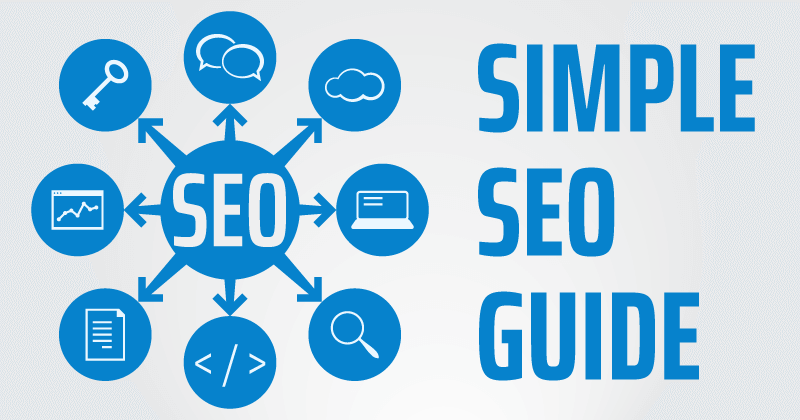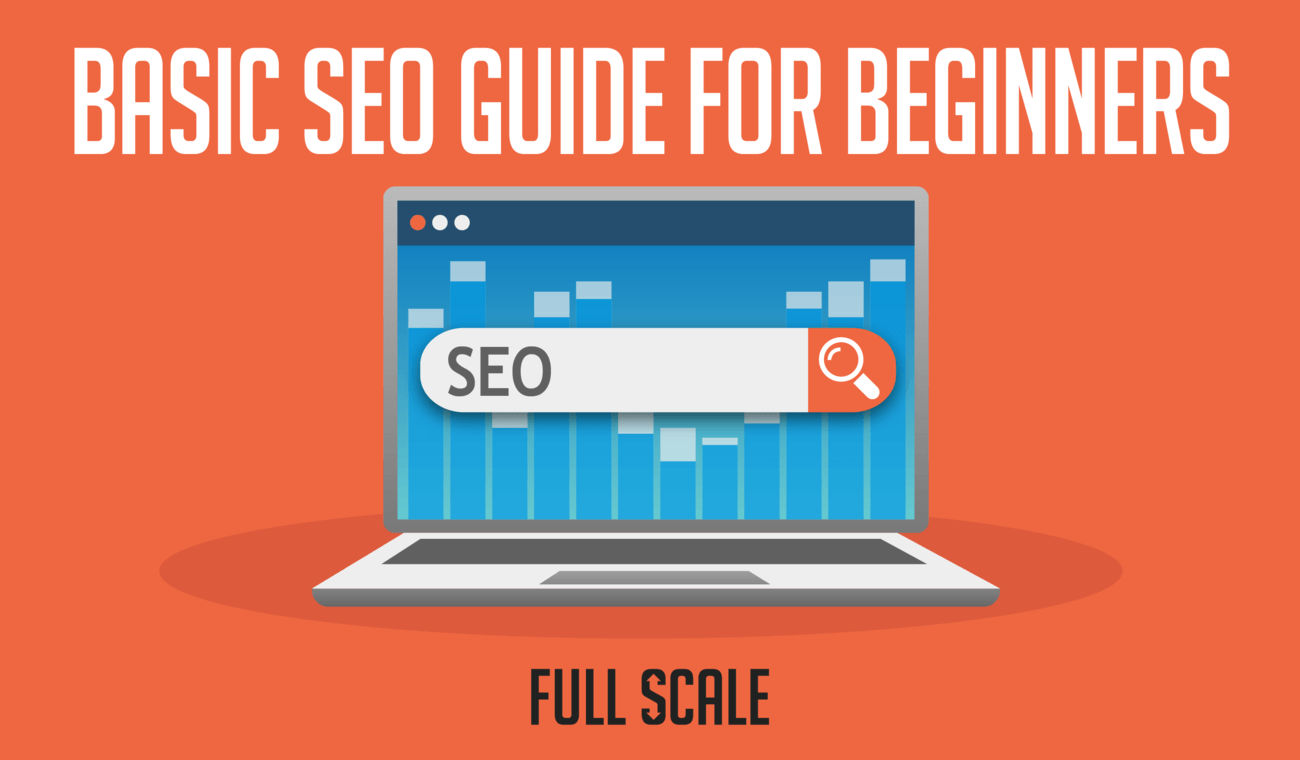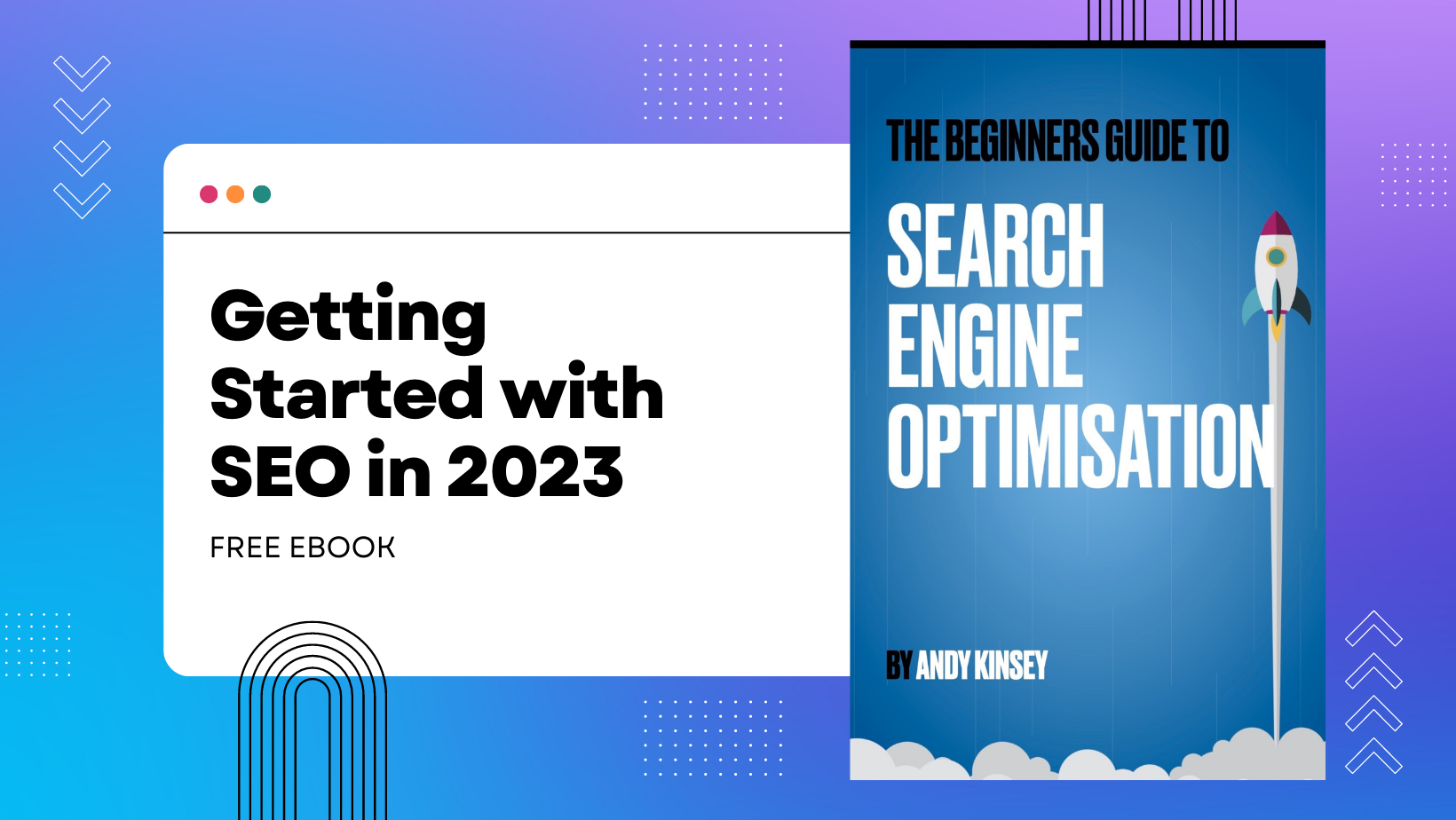Simple SEO Basics For Beginners: Getting Started with Simple SEO
Simple SEO Basics For Beginners, in the vast landscape of the internet, your website is like a needle in a haystack. To make your online presence known, you need to understand the SEO basics for newbies and embark on a journey to improve your website’s visibility. Welcome to the world of SEO, where you’ll uncover the easy SEO fundamentals for beginners and learn how to navigate the complexities of search engine optimization.

Table of Contents
What Is SEO, and Why Does It Matter?
SEO, short for Search Engine Optimization, is the art and science of optimizing your website to rank higher in search engine results pages (SERPs). When someone types a query into a search engine like Google, the search engine scours the web to find the most relevant results. SEO is all about making sure your website is one of those results, simple SEO Basics For Beginners.
The SEO Ecosystem
Before we dive into the beginner’s guide to SEO basics, let’s understand the SEO ecosystem. Search engines employ sophisticated algorithms that take into account various factors to determine a website’s ranking. Some of these factors include:
- Keywords: These are the words and phrases people use when searching. Understanding how to use them strategically is a fundamental aspect of SEO.
- Backlinks: When other reputable websites link to your site, it’s a vote of confidence in your content. Quality backlinks can boost your rankings.
- On-Page SEO: This involves optimizing individual pages on your site for specific keywords, improving their relevance to search queries.
- User Experience (UX): Search engines want to provide the best user experience possible. Your site’s speed, mobile-friendliness, and overall usability impact your rankings.
Now, let’s explore the easy SEO fundamentals for beginners.
Keyword Research: The Foundation of SEO
Keywords are the heart of SEO. They are the words and phrases users enter into search engines. To start your journey into Simple SEO Basics For Beginners, you need to conduct keyword research.

Understanding Keyword Intent
Keywords can be categorized into various types based on user intent:
- Informational Keywords: These keywords are used when people seek information. For example, “What is SEO?” falls into this category.
- Navigational Keywords: Users enter these keywords when they’re looking for a specific website or page, like “Facebook login.”
- Transactional Keywords: These keywords indicate an intent to make a purchase, such as “buy iPhone X.”
- Local Keywords: When users want to find businesses or services near them, they use local keywords like “Italian restaurants near me.”
- Investigational Keywords: Users use these keywords when they are researching a product or service, often preceding a purchase. An example is “best DSLR cameras.”
Long-Tail Keywords: Your SEO Allies
In the realm of beginner’s guide to SEO basics, long-tail keywords deserve special attention. Long-tail keywords are longer, more specific phrases that users search for. They may have lower search volumes, but they often convert better because they reflect a more defined intent.
For instance, if you run a pet supply store, targeting “dog food” as a keyword is highly competitive. However, targeting “grain-free organic dog food for sensitive stomachs” is more specific and likely to attract visitors who are ready to make a purchase.

On-Page Optimization: Making Your Content Shine
Once you’ve identified your target keywords, it’s time to optimize your website’s content. On-page optimization is a critical aspect of getting started with simple SEO.
Content Is King
High-quality, relevant content is the cornerstone of SEO. It’s not enough to stuff your pages with keywords. Your content needs to provide value to your audience. Search engines reward websites that deliver informative, engaging, and well-structured content.
Meta Tags: The Unsung Heroes
Meta tags, such as the title tag and meta description, play a crucial role in SEO. They provide a brief summary of what a page is about and appear in search engine results. Craft compelling title tags that include your target keyword to increase click-through rates.
Link Building: Building Your Website’s Reputation
In the vast sea of websites, backlinks act as recommendations from other sites. Think of them as referrals that vouch for your content’s quality.
Quality Over Quantity
When it comes to SEO basics for newbies, focus on acquiring high-quality backlinks rather than a sheer quantity of them. One authoritative backlink can outweigh multiple low-quality ones.
Technical SEO: Behind-the-Scenes Magic
Technical SEO involves optimizing the infrastructure of your website to improve its search engine visibility. While this aspect may seem daunting, there are some easy SEO fundamentals for beginners that can make a significant difference.
Site Speed Matters
A slow-loading website can harm your SEO efforts. Users and search engines prefer fast sites. Optimize your images, leverage browser caching, and use content delivery networks (CDNs) to improve site speed.
Tracking and Analytics: Measuring Your Success
In your journey of getting started with simple SEO, you’ll need to measure your progress and make adjustments accordingly.
Google Analytics
Google Analytics is a powerful tool that provides insights into your website’s performance. It helps you understand where your traffic is coming from, which pages are most popular, and how users interact with your site.
Conclusion of Simple SEO Basics For Beginners
Congratulations! You’ve taken your first steps into the world of SEO. This beginner’s guide to SEO basics has provided you with insights into the essential elements of SEO. Remember, SEO is an ongoing process, and staying updated with the latest trends and algorithms is crucial. As you continue to learn and apply these easy SEO fundamentals for beginners, your website’s visibility in search engine results will improve, and your online presence will grow.





14 thoughts on “Simple SEO Basics For Beginners: Getting Started with Simple SEO”